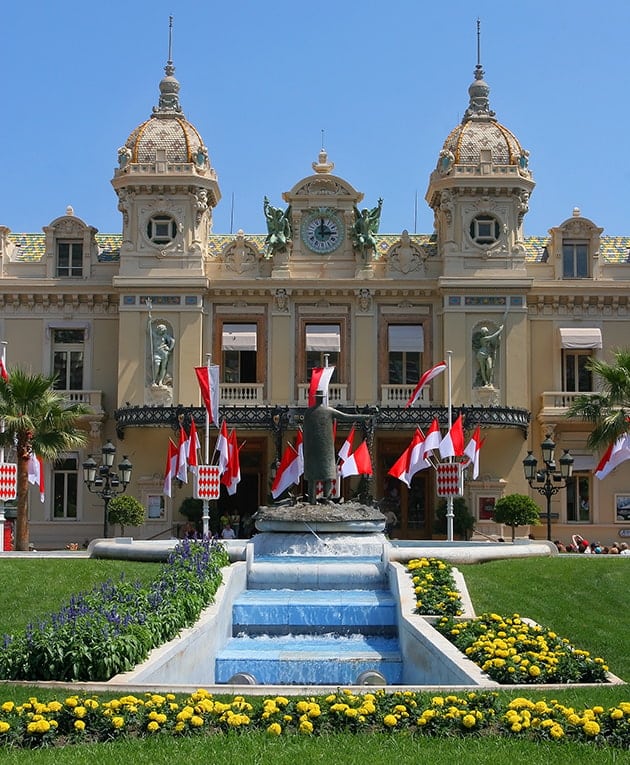-
Popular search terms
A Comprehensive Guide to Studying in:
Monaco

Monaco is one of the most unique countries in the world. It has a population of just 38,100, and more than 30% of its population are millionaires. Needless to say, no other country in the world comes even close to that percentage. So, why does it attract so many millionaires? Well, we imagine the non-existent income tax is probably the main driver, but the luxurious lifestyle, ultra-safe streets, and sweeping sea views don’t hurt either.
However, pursuing an MBA in Monaco is not a left-field choice as you might think. The city-state’s only university – the International University of Monaco (IUM) – has been running since 1986 and has a student body of over 600. It holds a number of accreditations from global bodies and specializes in Monaco’s most prominent industries – namely, luxury services, wealth management, tourism, and sports management. As the only university in Monaco, it holds privileged links with the principality’s major companies, so if you have a clear idea of where you want to go in your career then studying in Monaco is a smart choice.

Frequently Asked Questions
FAQ
Did You Know? Fun Facts About Monaco
- 1 Over 30% of Monaco's residents are millionaires.
- 2 Monaco has the second-highest GDP per capita in the world.
- 3 As one of the safest countries in Europe, Monaco has one police officer for every 100 residents.
- 4 Over 48,000 people from France and Italy commute to Monaco for work every day.
- 5 An average person can walk the width of Monaco in just 56 minutes!
Which Visas & permits do i need in Monaco
Any international student from outside the EU/EEA looking to complete their MBA in Monaco needs a student visa. You will need to apply for a visa at the nearest French embassy or consulate in your home country. Monaco does not have its own visa services; all applications go through the French authorities. If you choose to live in Monaco, you will need to apply for a Long Stay Student Visa. If you choose to live in France, you will need to apply for a Long Stay Visitor Visa (called a VLS-TS type D visitor). This visa allows you to live in France and study in Monaco.
You will need to submit documents including a valid passport or ID, three passport photos, an acceptance letter from your university, and a valid address.
Banking in Monaco
The main banks in Monaco include Barclays Wealth Monaco, Société Générale Monaco, BNP Paribas, Credit Du Nord Monaco, and Bank Julius Baer Monaco. The most common type of bank account is called a “compte courant” and will be helpful if you need a phone or internet subscription.
To open a bank account in Monaco, you generally need to meet with a member of the bank’s staff. You will need to provide documents such as a valid travel document, proof of residence, a letter of admission, an overview of your financial situation, and general background information like your birthplace.
What do I need to know about healthcare in Monaco
All international students are required to have health insurance during their studies. Private health insurance covers doctor visits, hospital treatment, advanced dental care, and elective cosmetic surgery. Packages for students are also available – Monaco-based Ascoma Insurance, for example, offers a health insurance policy for students starting from EUR€45 per month. At the International University of Monaco (IUM), it is also mandatory for students to take out renter’s insurance and personal liability insurance.
Housing options for students in Monaco
Most international students in Monaco opt to share an apartment with other students to reduce their rental costs. A private double room typically costs between EUR€600 and €800, or EUR€800-1,200 for your own apartment. The International University of Monaco (IUM) partners with a student housing platform where landlords and rental agencies can post their accommodation options. IUM candidates are given access to the platform when their application is accepted.
What are the public transport options in Monaco
You can travel around Monaco using different types of public transport, from buses to taxis to ride-sharing services. Public transport may cost students up to EUR€40 a month. The most common form of transport in Monaco is bicycles. Students can also travel in style via helicopter!
Monaco does not have its own airport; the closest airport is the Nice Cote d’Azur Airport (NCE), the third-busiest airport in France. NCE has over 100 available flights within Europe, as well as long-haul connections through Air France.
How much does a Big Mac cost in Monaco
The Big Mac Index was invented by The Economist in 1986 as an informal way of measuring the purchasing power parity (PPP) between two currencies. The price of a Big Mac in Monaco is EUR€4.60 (equivalent to US$4.93 and JP¥626). For US$50, you can buy 10 Big Macs.
Average monthly expenses for a student in Monaco ranges from EUR€2,000-3,000 a month. Most of your budget will be taken up by rental accommodation and food.